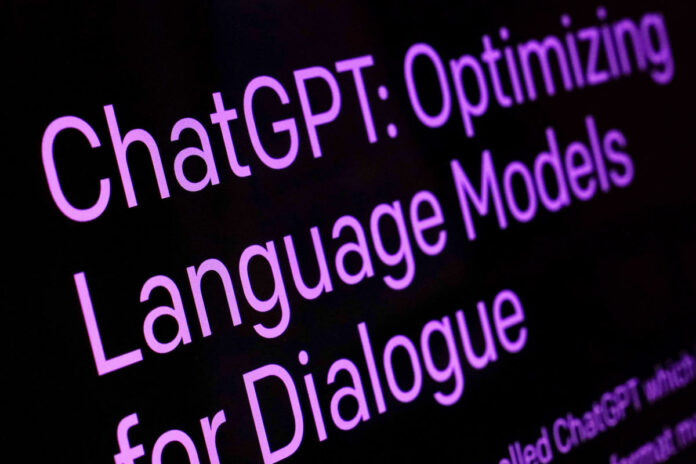LONDON (AP) — Authorities around the globe are racing to attract up guidelines for synthetic intelligence, together with within the European Union, the place draft laws faces a pivotal second on Thursday.
A European Parliament committee is ready to vote on the proposed guidelines, a part of a yearslong effort to attract up guardrails for synthetic intelligence. These efforts have taken on extra urgency because the fast advance of ChatGPT highlights advantages the rising expertise can convey — and the brand new perils it poses.
Here is a have a look at the EU’s Synthetic Intelligence Act:
HOW DO THE RULES WORK?
The AI Act, first proposed in 2021, will govern any services or products that makes use of a man-made intelligence system. The act will classify AI techniques based on 4 ranges of threat, from minimal to unacceptable. Riskier purposes will face more durable necessities, together with being extra clear and utilizing correct knowledge. Give it some thought as a “threat administration system for AI,” stated Johann Laux, an skilled on the Oxford Web Institute.
WHAT ARE THE RISKS?
One of many EU’s fundamental objectives is to protect towards any AI threats to well being and security and shield basic rights and values.
Which means some AI makes use of are an absolute no-no, comparable to “social scoring” techniques that choose folks based mostly on their habits or interactive speaking toys that encourage harmful habits.
Predictive policing instruments, which crunch knowledge to forecast the place crimes will occur and who will commit them, are anticipated to be banned. So is distant facial recognition, apart from some slender exceptions like stopping a particular terrorist risk. The expertise scans passers-by and makes use of AI to match their faces to a database. Thursday’s vote is ready to determine how in depth the prohibition shall be.
The goal is “to keep away from a managed society based mostly on AI,” Brando Benifei, the Italian lawmaker serving to lead the European Parliament’s AI efforts, advised reporters Wednesday. “We expect that these applied sciences might be used as an alternative of the nice additionally for the unhealthy, and we think about the dangers to be too excessive.”
AI techniques utilized in excessive threat classes like employment and training, which might have an effect on the course of an individual’s life, face powerful necessities comparable to being clear with customers and setting up threat evaluation and mitigation measures.
The EU’s government arm says most AI techniques, comparable to video video games or spam filters, fall into the low- or no-risk class.
WHAT ABOUT CHATGPT?
The unique 108-page proposal barely talked about chatbots, merely requiring them to be labeled so customers know they’re interacting with a machine. Negotiators later added provisions to cowl basic objective AI like ChatGPT, subjecting them to a number of the identical necessities as high-risk techniques.
One key addition is a requirement to totally doc any copyright materials used to show AI techniques the way to generate textual content, photographs, video or music that resembles human work. That will let content material creators know if their weblog posts, digital books, scientific articles or pop songs have been used to coach algorithms that energy techniques like ChatGPT. Then they might determine whether or not their work has been copied and search redress.
WHY ARE THE EU RULES SO IMPORTANT?
The European Union is not an enormous participant in cutting-edge AI growth. That position is taken by the U.S. and China. However Brussels usually performs a trendsetting position with laws that are inclined to turn into de facto world requirements.
“Europeans are, globally talking, pretty rich and there’s plenty of them,” so corporations and organizations usually determine that the sheer dimension of the bloc’s single market with 450 million shoppers makes it simpler to conform than develop totally different merchandise for various areas, Laux stated.
But it surely’s not only a matter of cracking down. By laying down widespread guidelines for AI, Brussels can be attempting to develop the market by instilling confidence amongst customers, Laux stated.
“The considering behind it’s if you happen to can induce folks to to position belief in AI and in purposes, they may even use it extra,” Laux stated. “And once they use it extra, they are going to unlock the financial and social potential of AI.”
WHAT IF YOU BREAK THE RULES?
Violations will draw fines of as much as 30 million euros ($33 million) or 6% of an organization’s annual world income, which within the case of tech corporations like Google and Microsoft might quantity to billions.
WHAT’S NEXT?
It might be years earlier than the principles totally take impact. The flagship legislative proposal faces a joint European Parliament committee vote on Thursday. The draft laws then strikes into three-way negotiations involving the bloc’s 27 member states, the Parliament and the chief Fee, the place faces additional wrangling over the main points. Remaining approval is anticipated by the top of the 12 months, or early 2024 on the newest, adopted by a grace interval for corporations and organizations to adapt, usually round two years.


